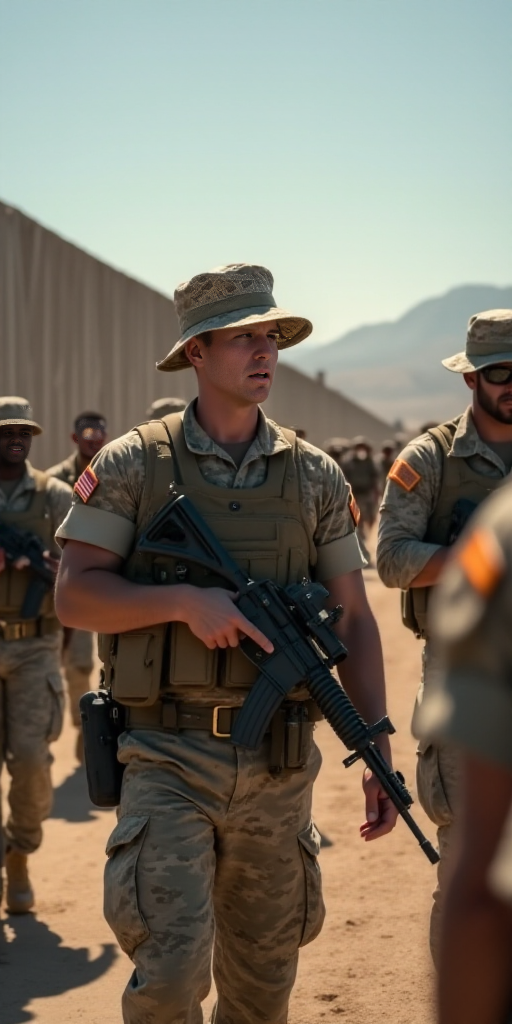Introduction
In a decisive move to address illegal immigration, President Donald Trump has ordered the deployment of 1,500 active-duty troops to the US-Mexico border. This action underscores the administration’s commitment to strengthening border security and curbing unlawful entries into the United States.
Key Takeaways
- Deployment of Active-Duty Troops: 1,500 active-duty military personnel are being sent to support existing border security efforts.
- Support Roles: The troops will assist with logistics, transportation, and barrier construction, bolstering the capabilities of border patrol agents.
- Policy Reinstatements: Plans include reviving the “Remain in Mexico” policy and resuming the construction of the border wall.
- Legal and Logistical Challenges: The deployment raises questions regarding the military’s role in domestic law enforcement and the potential strain on resources.
- Criticism and Support: The decision has sparked debate, with supporters citing enhanced security and critics expressing concerns over militarization and humanitarian implications.
Deployment Details
The Department of Defense is set to dispatch approximately 1,500 active-duty troops to the southern border. These forces will join the 2,500 National Guard and Reserve personnel already stationed there, marking a significant increase in military presence. The primary responsibilities of these troops include providing logistical support, facilitating transportation, and assisting in the construction of physical barriers.
Policy Reinstatements
In conjunction with the troop deployment, the administration plans to reinstate the “Remain in Mexico” policy, officially known as the Migrant Protection Protocols. This policy requires asylum seekers to wait in Mexico while their claims are processed in U.S. courts. Additionally, there is an initiative to resume construction of the border wall, a hallmark of President Trump’s earlier tenure.
Legal and Logistical Challenges
The use of active-duty military personnel in domestic roles traditionally reserved for civilian agencies raises legal considerations, particularly concerning the Posse Comitatus Act, which limits military involvement in civilian law enforcement. The administration asserts that the troops will serve in supportive capacities, thereby adhering to legal constraints. Logistically, integrating military operations with border enforcement agencies necessitates careful coordination to ensure efficiency and effectiveness.
Public Response
The decision to deploy troops has elicited mixed reactions. Proponents argue that a fortified military presence is essential for national security and deterring illegal activities, including human trafficking and drug smuggling. Conversely, critics contend that militarizing the border may lead to humanitarian issues and strain relations with neighboring countries. Immigration advocacy groups have expressed concerns about the potential for increased confrontations and the well-being of migrants.
Conclusion
President Trump’s directive to send troops to the US-Mexico border represents a significant escalation in immigration enforcement efforts. As these measures unfold, the balance between national security imperatives and humanitarian considerations will remain a focal point of public discourse.
#UnitedStates
Source










